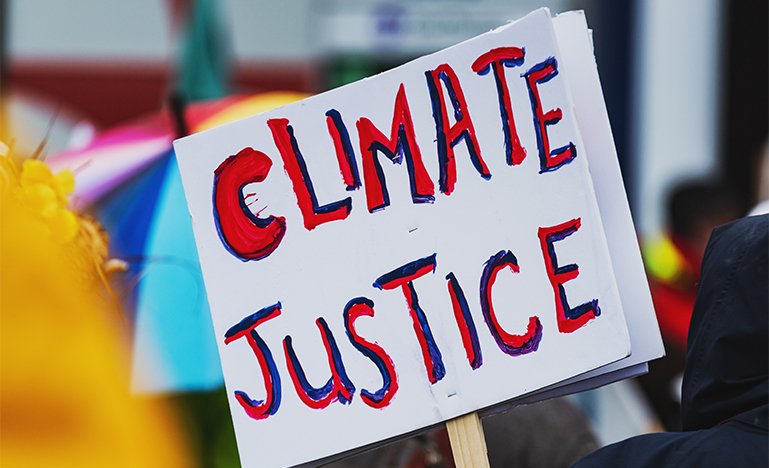The legal profession and climate action
Climate change is a collective burden, and addressing its impacts must be done equitably and fairly, with ethical and legal considerations in mind.

That, at least, is the central idea at the core of climate justice. But according to Meredith James, a lawyer at Woodward & Company Lawyers LLP in Victoria, it isn’t always clear to legal professionals how their responsibilities align with the global need for climate action.
“As we come to understand the enormous scope and severity of the current and future impacts of climate change, lawyers are increasingly recognizing that they have a role to play in responding to the climate crisis,” she says.
James is moving a resolution on climate leadership at the upcoming CBA AGM in Ottawa.
The resolution would have the CBA adopt a definition of climate justice. “The proposed definition of climate justice clarifies that our role as lawyers is to ensure substantive legal and procedural rights relating to the enjoyment of a safe, clean, healthy and sustainable environment, and to ensure that actions to reduce GHG emissions and adapt to the changing climate respect both human rights and indigenous rights,” says James.
Recognizing the profession’s responsibility in helping shape law reform policies in Canada, the resolution also proposes that the CBA consider climate justice and the impacts of climate change in its various submissions on potential law reform. It proposes to do the same in developing educational programming and to encourage lawyers to engage in various activities to aid efforts to combat and adapt to climate change and advocate for climate justice.
The first step towards embedding climate justice in our laws and legal systems, says James, is to understand the scope of both climate impacts and the necessary response. “Action on climate change to limit global warming to 1.5 °C will require rapid and far-reaching transitions in land, energy, industry, buildings, transportation and cities,” she says. “This type of transition will require legal support from many areas of practice as well as new or amended laws well beyond traditional environmental legislation.”
The second step is to make climate justice a priority when crafting these new law and policy tools, she adds. “Climate change is an enormous risk and challenge, but also an opportunity to create new systems that support sustainability, human rights, and indigenous rights.”
For more on this topic and to share your views on the proposed resolution, please visit our discussion board.


